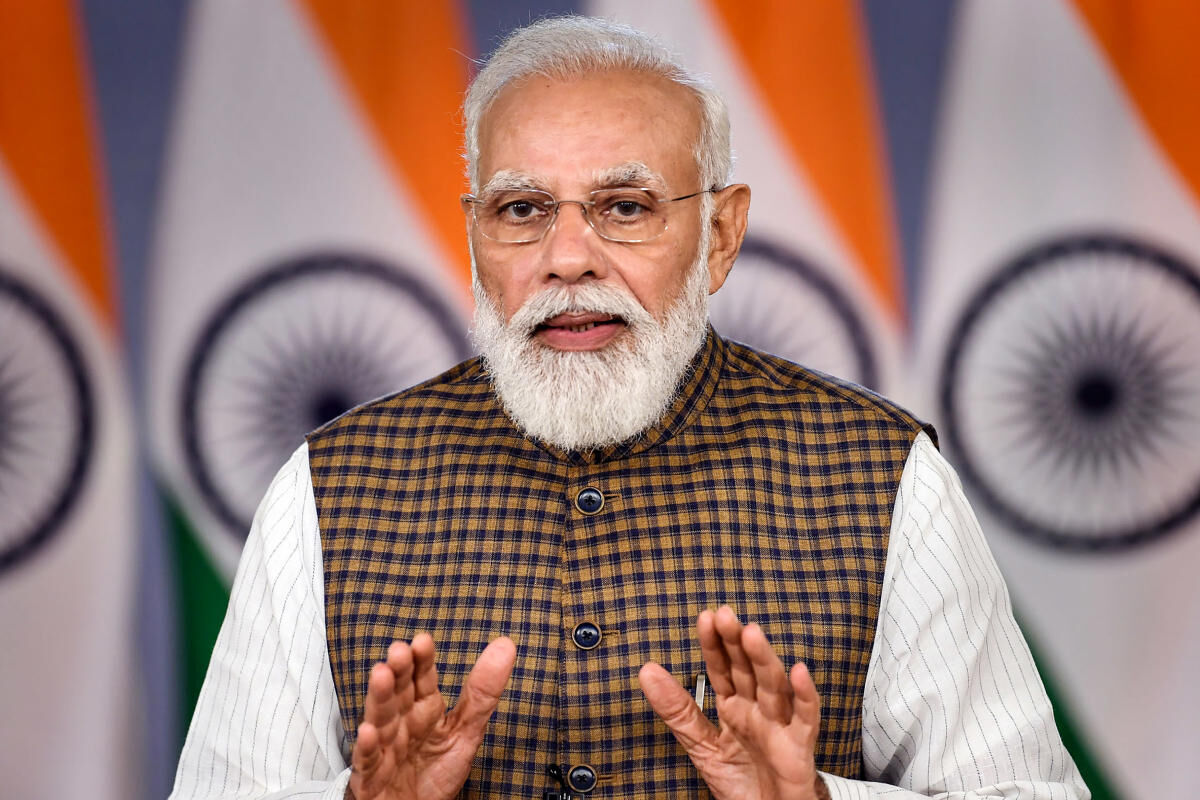Walk the talk

In the annual Davos meeting, held virtually due to the pandemic-related health risks, Prime Minister Narendra Modi highlighted India's standing on a variety of issues. The meeting, generally held in Switzerland's Davos during January, is seen as a festival in itself for the nations and stakeholders that claim to be progressing towards a more democratic, globalized and capitalistic set-up. It focuses on generating innovative ideas in a variety of areas including global cooperation, climate change, social equity among other things. Apart from nation heads, it sees participation from business tycoons, media outlets, civil society leaders and other important stakeholders. It is in this context of the meeting that Prime Minister Modi claims India to have given to the world a bouquet of democracy and multiculturalism. Despite certain democratic values witnessing a downgrade internally, there could be no denying the fact that India's prestige as a strong democracy is widely acknowledged at the global level. The message was clear that democratic values need to be strengthened in words and action. At the same time, the PM also flagged certain key issues that demand immediate focus at the global level. His call to democratic nations to reform the world's multinational organizations to bring them in sync with the 'new world order and new challenges' is significant though not new. The issue of reforming multinational organizations has been raised for over a decade now. The failure of such organizations in handling present-day global security and strategic challenges, more so in the pandemic-hit world, has lent greater currency to the issue. However, a mere reiteration of this concern time and again may be far from enough in addressing such a structural problem at a global level. Certainly, it will take time but a collaborative effort on this front is also largely missing, despite the fact that the structures of many of the prominent multinational organizations grossly undermine the sense of equal representation. Prime minister also didn't miss the opportunity to invite investment into the country. He rightly seized the opportunity to project India as a significant player in the global supply chain. Supply chain issue has emerged as an issue of prominent concern among many of the Western nations that are desperately looking to end the Chinese hegemonic control in South Asia. Highlighting India's suitability as an investment hub, the PM pointed towards the country's 'deep economic reforms' and USD 1.3 trillion investment in digital infrastructure. The Indian government's focus on improving ease of doing business has been evidently clear. Before it was discontinued, India's ease of doing business ranking had increased sharply from 142nd in 2014 to 63rd in 2019. Riding on the back of the impressive Atma Nirbhar Bharat programme and a bunch of production-linked incentive schemes, India has been able to ink a fairly decent post-Covid economic recovery strategy. Interestingly, the ratings agency Fitch has projected the growth of India in the FY 2023 to be 10.3 per cent. It must be said that at least the focus of the government appears to be in the right direction — promoting tech-enabled domestic production in the country. Domestic production is being considered to be a pivot around which other things like trade dependency, investment and exports / imports would revolve around. Moreover, the outcomes of this approach also appear to validate the strategic focus on domestic production. At the same time, health experts have projected that the Omicron wave may peak in a couple of weeks. As India will step out from the shadow of the third wave, a fairly decent proportion of its population will be fully vaccinated. Greater immunity at the society level will add to the case of speedy economic recovery. So, the stage is set and a call has been made before the world. Everything now depends on how the economic policies of the government will pan out. The announcement of the annual budget will be closely watched for in this regard. Investment is one of the basic attributes of any functioning economy at any point in time but the recovery phase from the pandemic offers a distinct opportunity for India. The claims made by the PM around the handling of the pandemic may be contested. Any mention of the handling of pandemic, which skips the adversities and failures of the second wave is only a half truth. As a mark of respect to those who lost their lives, their remembrance needs to be kept alive. Davos is a stage for innovative ideas, some of which may fructify in the real world, some may just support other dominant ideas and others may simply fail. For the sake of national interest, the Indian government should take the ideas pronounced at Davos very seriously, and ensure that best of those become a reality.



